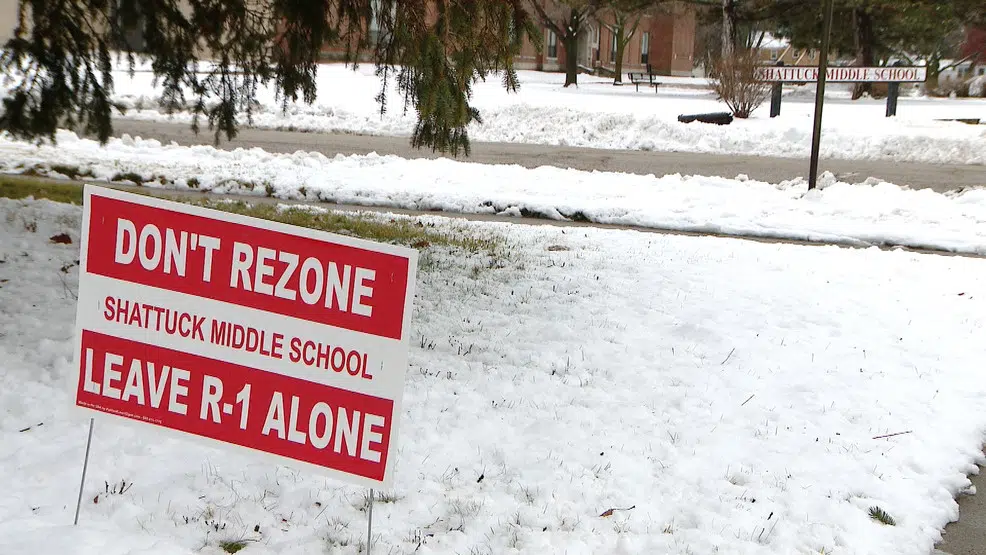GREEN BAY, WI (WTAQ-WLUK) — A lawsuit challenging Neenah’s sign ordinance — which came under scrutiny during the proposed sale of the Shattuck Middle School site — is now in the hands of a federal judge after the plaintiffs submitted additional arguments Monday.
The proposed sale of the former Shattuck Middle School into residential apartments and other living spaces has been opposed by some neighbors. Yard sign opposing the redevelopment reading “Don’t Rezone Shattuck Middle School Leave R1 Alone” have been posted by some people. The city issued notices, demanding the signs be removed by Feb. 8. Timothy and Megan Florek, with the help of the Wisconsin Institute for Law and Liberty, filed suit in federal court, seeking to have the ordinance overturned.
The City of Neenah voluntarily stopped enforcement of the ordinance last month, while the federal lawsuit about the code continues.
In its filing earlier this month, Neenah asked for the case to be dismissed in its favor.
“The Ordinance neither addresses the content of any message being portrayed on the sign, nor does it limit a person’s ability to speak on a particular subject. The Floreks could put anything they wanted on the sign but could only leave the sign up for 30 days out of a 90-day period. The Ordinance controls time of display, not content. Furthermore, the Floreks possessed ample alternative avenues to advance their desired message, including, but not limited to, picketing, protesting, and hand-billing,” the city argued.
In a 16-page filing Monday, the Floreks contended they would prevail on each of the points of law:
- Under the Floreks’ first claim, the City’s sign code is content-based, and thus subject to strict scrutiny review, which it cannot survive because it is not narrowly tailored to serve a compelling governmental interest
- As the Floreks asserted in their second claim, in addition to being unconstitutionally content-based, the City’s sign code also violates the First Amendment through its arbitrary and unreasonable restrictions on protected speech including political speech — and the Floreks are likely to succeed on this claim as well
- Under the Floreks’ third claim, Defendants’ actions in sending notices of violation to the Floreks constitute punishment for the Floreks’ exercise of protected political speech in violation of the First Amendment. Defendants argue that because they did not act maliciously, the Floreks are not likely to succeed on this claim, but Defendants’ argument fails
A federal judge is expected to issue a decision in writing, but there is no timetable for such action. At this point, no hearings or arguments in court are planned.









